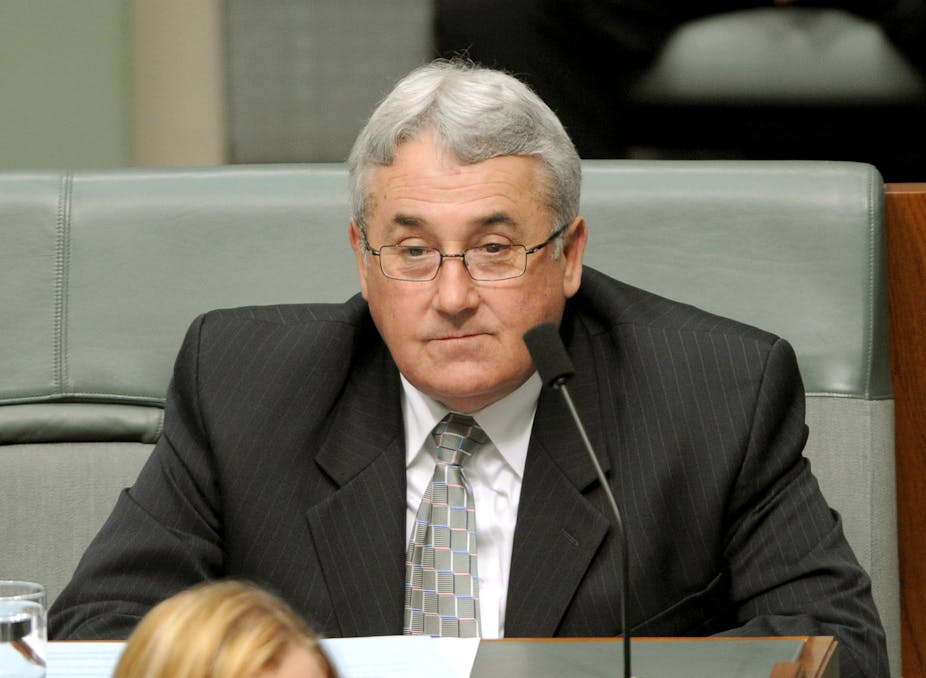Caucus has left it to next term’s Labor MPs to decide whether they want to reclaim the right to choose the frontbench.
A move by retiring backbencher Steve Gibbons was deferred until after the election, on an amendment from right wing factional chief Don Farrell and former minister Martin Ferguson.
Gibbons told today’s meeting that “we started heading in the wrong direction when we changed Rule 38 – and this caucus must bear some of the responsibility for that”.
“That’s why I think that it’s appropriate that this caucus takes the necessary steps to correct that mistake,” he said.
Former leader Kevin Rudd seized power to choose the frontbench when he was opposition leader and this was formalised in what Gibbons described as the “post election euphoria of 2008”.
“Some have argued that the change was designed to modernise our party’s rules and bring the party into the 21st century,” Gibbons said, “It actually bought us backwards not forwards.”
Countering the view that a return to caucus choosing the frontbench would empower factions to determine its make-up Gibbons said that factions, or self appointed factional power brokers, could only determine the process “if the caucus allows them to”.
“Caucus must retain the ability to be in charge of its own destiny. We have a free vote for leadership positions – why can’t there be a free vote for all executive positions free of the self interest of the leader and those who fancy themselves as so called power brokers in caucus?”
Gibbons’ motion was seconded by Daryl Melham, a former chairman of caucus.
Labor elder John Faulkner, one of those who reviewed the party after the 2010 election raised the option of election for individual frontbench positions rather than a bloc vote. This would reduce the chance of the factions dominating the process.
Infrastructure Minister Anthony Albanese said that the motion was going to the wrong question – the real issue was giving Labor Party members more say, including on the leadership and national conference.
Albanese pointed out that even under the old system, caucus didn’t really have ballots – a reference to the factional carve ups.
Former speaker Harry Jenkins supported the motion, saying an elected frontbench made the executive more accountable to caucus.
If the frontbench were elected, the leader would still retain the right to allocate portfolios.
The decision to defer was unanimous. Given the timing and the leadership tensions, people did not want an argument. Those in favour of the change believe there is strong support for it.
After the election the motion would be on the caucus notice paper but someone else would have to take it up, because Gibbons will not be there.
In her leader’s address to caucus Prime Minister Julia Gillard stressed the need for the party to focus on the nation, “not ourselves”, and to remain a political party of purpose.
“We need to put purpose before self interest,” she said, reminding MPs the formal election campaign began on August 12.
The low key caucus meeting came against the background of a party that is highly tense over the leadership question, with the stalemate continuing between a leader who will not step aside and a more popular alternative who will not challenge.

